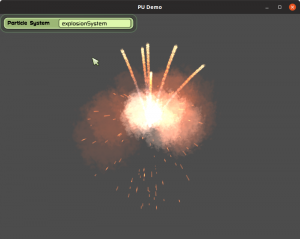![]() following the last post about what is going on around Ogre, here is another update.
following the last post about what is going on around Ogre, here is another update.
Ogre-next project split
So lets put first things first; Ogre v1 and Ogre v2 are not only different versions of Ogre, but rather separate projects. Now officially.
While this sounds like big news, actually it is not that much of a change. If you followed the development of Ogre, you already noticed that the two branches moved independently in two separate directions. Hence, we had to write the what version to choose page.
Generally, Ogre2 focuses on the latest and fastest techniques, Ogre1 focuses on backward compatibility and keeping old projects running. Also Ogre1 is developed on github, while Ogre2 still lives on bitbucket.
With bitbucket now abandoning mercurial, we decided to move Ogre2 to github as well. While we could have kept it in a branch, we instead decided to create a separate repository with own issue tracking, landing page etc. So, enter ogre-next.
This also makes it possible to follow semver with Ogre1 and make a 2.0 release when needed.
Ogre 1.12 long term support
The 1.12 release turned out to be a very solid foundation – there is no immediate need to break API.
Therefore we extend the support period by one year until April 2021, making 1.12 a LTS release.
Meanwhile, the 1.12.2 point release had a major focus on integration
- The C#/ .NET bindings are now build as part of the MSVC SDK
- The DotScene plugin is now part of Ogre
- Preliminary support for loading SPIRV shaders in GL3+
- TinyXML1 got replaced by pugiXML, which is still maintained and faster.
OgreXMLConverteris now 3.2x faster when converting XML to .mesh. - the “Volumetric Light Shafts” demo floating around on the forums was refactored and added to the SampleBrowser. It now works with ordinary spotlights, instead of requiring a special camera and integrates with the shadow system:
OGRECave ecosystem
- The Scape terrain editor was brought into shape by Tobias Schmidt. The Qt port is now fully done and thus the 19.09 release could be tagged.
- Initial support for Blender 2.80 was contributed by Paul Gerke in the 2.80-support branch of blender2ogre
- The oggsound and theora plugins were merged into a single repository. The included sample now shows a video texture with positional audio.
- the popular Particle Universe add-on now has an improved Demo that allows you to easily explore all bundled Particle Systems.


